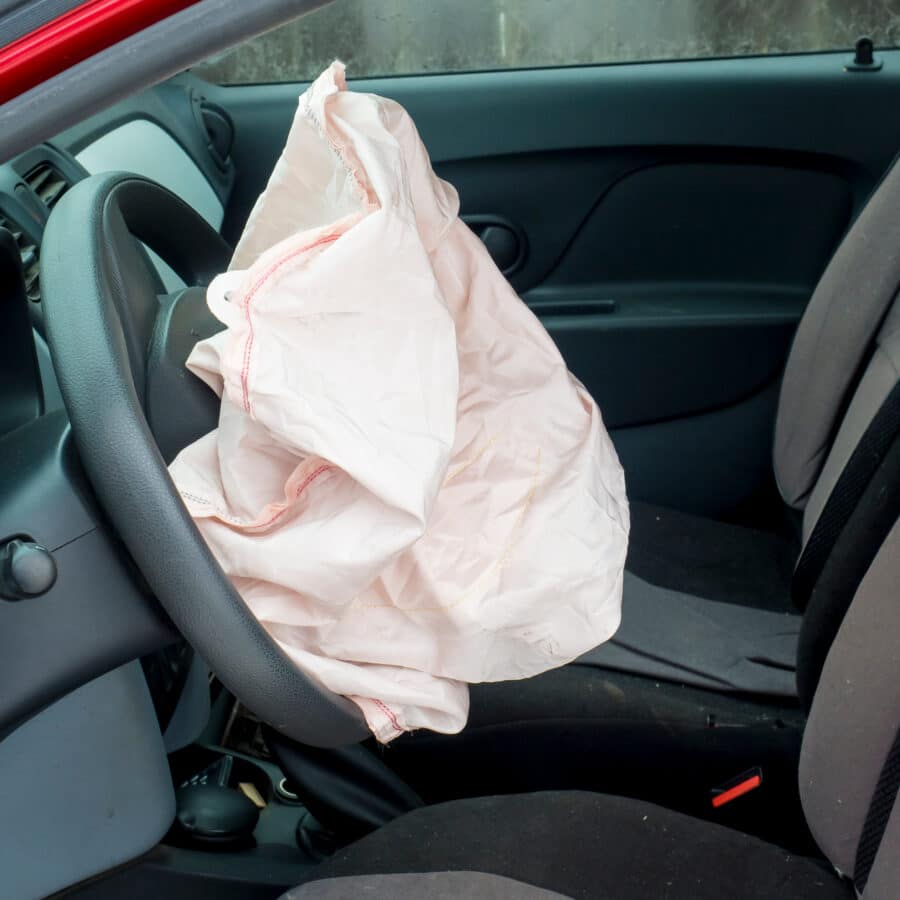General Motors (GM) has now filed three petitions to the National Highway Traffic Safety Administration (NHTSA) requesting a recall exemption for nearly two million of its 2007 to 2013 model vehicles with Takata airbags, which have been linked to at least 23 deaths worldwide, including 15 in the U.S. Takata, NHTSA, and other automakers have urged vehicle owners to have their airbags replaced immediately, but GM is refusing to supply replacement airbags for vehicles that were initially included in recalls while it waits for a decision on whether it will be exempt. Meanwhile the automaker instructed dealers to tell customers their vehicles are safe and they will receive a notice if a replacement be deemed necessary.
The Takata airbags in question contain the chemical compound ammonium nitrate, which is used as a propellant. The propellant, housed in a canister in the steering wheel or behind the passenger dash, rapidly generates gas to inflate the airbag cushion during a crash. Ammonium nitrate is volatile and highly sensitive to moisture and heat which can cause the chemical to create too much pressure too quickly and rupture the metal canister, spewing metal fragments into the vehicle and occupants.
In addition to the highly volatile ammonium nitrate, Takata inflators were designed and manufactured poorly, allowing increased levels of moisture into the metal cannister, which are supposed to follow design standards that require they fail safely without fracturing even in the event of over-pressurization. NHTSA has concluded this combination is extremely dangerous, particularly for airbags exposed to humidity over several years, and has required that automakers with Takata airbags implement phased recalls based on geographical location and years in use.
Some GM vehicles have experienced airbag inflator ruptures: In 2014, the company recalled the 2013-2014 Chevy Cruze following two driver-side ruptures (recall 14V372). These inflators included desiccant, a material used as a drying agent, intended to delay the effects of moisture on the propellent chemicals, but components were mis-manufactured causing blockage at the vent holes that are designed to allow pressurized gas to escape.
NHTSA has consolidated the three GM petitions into one covering the passenger frontal airbags in the following 2007 to 2013 vehicles:
- Chevrolet Silverado 1500
- GMC Sierra 1500
- Chevrolet Silverado 2500/3500
- GMC Sierra 2500/3500
- Chevrolet Tahoe
- Chevrolet Suburban
- Chevrolet Avalanche
- GMC Yukon
- GMC Yukon XL
GM’s third petition, filed January 9, 2018, claims that the Takata passenger airbag inflators used in these vehicles differ from others and that independent testing has shown that this design “will continue to operate safely for decades, even in the highest temperature and humidity regions” which include design features and locations that better protect them from moisture and weather elements.
The testing was done for GM by Orbital ATK, who collected inflators from vehicles and claimed there were no ruptures following their simulation of 35 years of extreme humidity and temperature fluctuations. But in a Federal Register notice published in July 2018, in response to the petitions, NHTSA questioned the testing noting some inconsistencies and incomplete supporting information. Others who have filed comments in response to GM’s request for exemption (Docket: NHTSA-2016-0124-0175), like The Center for Auto Safety, argued the testing used artificial conditions that didn’t account for real-world variables that increase the risk of failure, like vibrations that occur during normal driving which damage the propellant, making it more likely to rupture.
Until the NHTSA makes its decision, nearly two million GM vehicles remain unrepaired. If you or your family member was involved in an accident that was caused by a defective auto part, contact our product liability attorneys at Newsome Melton to discuss your legal options: 888-808-5977.


